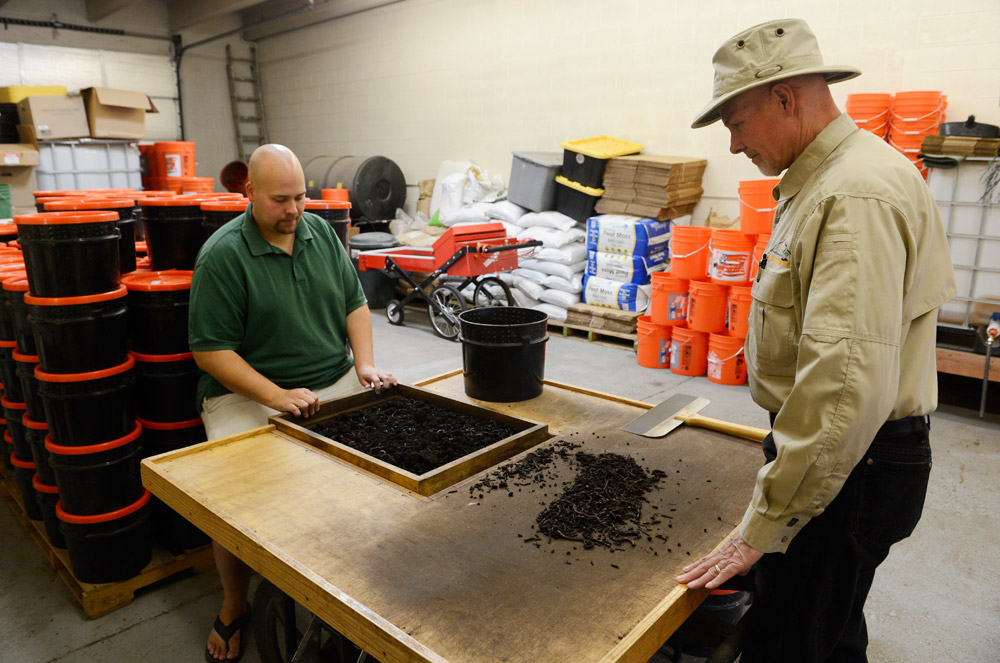A healthy organic garden takes the right mix of microbiological forces, and a successful business needs the right mix of market forces. Ken Williams and his son Jay unexpectedly found both at the intersection of worm poop and weed.
The Williamses began Rocky Mountain Worm Co. in 2010, after Ken, an avid gardener, grew disillusioned with the artificial plant food and soil amendments lining garden center shelves.

“Man-made fertilizers and look-alike composts are more damaging than helpful,” said Williams. “The work of worms is how it has always been, since the beginning of time.”
Worms help break organic materials into compost that, in turn, nourishes soil and helps plants grow strong. The more Williams studied natural gardening methods, the more passionate he became.
His son saw this excitement and offered to help his dad pursue it as a real business.
“I’ve always looked up to him. He is one of the hardest-working people I know,” Jay said. “So getting into business with him seemed like an easy idea.”
Direct from Amsterdam: Five tips on growing your own marijuana at home
Rocky Mountain Worm’s original business model revolved around selling small quantities of red wiggler worms at El Paso County farmers’ markets.
But that plan took a dramatic turn after Colorado voted in 2012 to legalize recreational use of marijuana.
“Originally, our business was for the gardening angle,” Jay said. “Since Amendment 64 passed, 85 percent of our business is for the marijuana industry.”
The duo went from selling 1-pound bags of red wiggler worms to home composters to filling 2,000-pound orders of worm castings — or poop — for marijuana growers statewide.
While the company still sells small batches of actual worms, they have expanded their offerings to fit what the organic-minded customer needs.
“We consider ourselves worm farmers, but we are really micro-farmers because we are actually selling the microbiology that makes their growing successful,” said Jay, who has a background as a nuclear medical technologist. “If you are getting into the all-organic growth, you need all the microbiology in the soil working in harmony to release nutrients.”
How do you consume your cannabis? Product reviews from Firefly, O.penVape, Sasquatch Glass, Grenco Science and more. Want your gear reviewed? Submit your glass, vapes and more: cannabistcritics@gmail.com.
To handle the influx in bulk orders, the Williamses beefed up their worm power, switching to the African nightcrawler breed — a larger, more aggressive composter. The company is starting to sell a host of related products, such as worm eggs.
Adaptability has been key for the Colorado Springs startup, both in terms of business model and the personal toll.
“As far as family dynamic, it has made us a lot closer because we work so intimately on the business whenever (Ken) isn’t at his day job,” said Jay.
Ken still works a full-time job as an excavator while Jay runs the day-to-day operations at the worm farm and storefront.
“The ultimate goal,” Jay said, “is to employ both of us.”
Kristen Leigh Painter: 303-954-1638, kpainter@denverpost.com or twitter.com/kristenpainter
